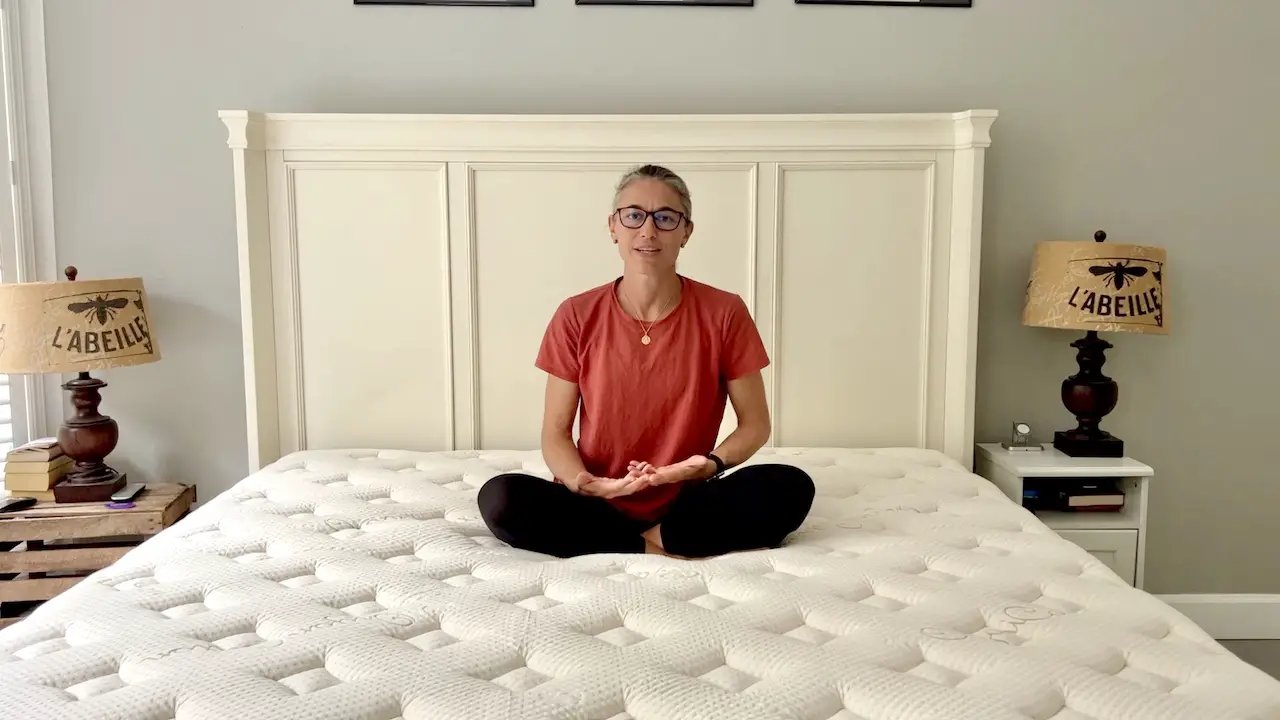HOW LONG BEFORE BED TO EAT
When To Eat For Better Sleep
Eating before bed is a common habit, but it can significantly impact sleep quality. Many people wonder: How long before bed to eat? Understanding the ideal time frame and what foods to consume can make a noticeable difference in how well you sleep.
Let’s take a closer look at the best practices for nighttime eating and how it affects rest, so you can start optimizing your sleep today.
Table of Contents
How Long Before Bed to Eat for Optimal Sleep?
Experts generally recommend finishing meals 2 to 3 hours before bedtime. This allows the body to properly digest food and helps prevent issues like acid reflux, discomfort, or disrupted sleep cycles. However, individual factors such as metabolism, dietary choices, and specific health conditions can influence this timeline.
Why Timing Matters: The Science Behind Late-Night Eating
When you eat too close to bedtime, your body remains active in digesting food instead of winding down for sleep. Here’s how eating late affects sleep:
-
Digestive Discomfort: Lying down immediately after eating can cause acid reflux and bloating.
-
Blood Sugar Spikes: Consuming heavy meals late at night can lead to fluctuations in blood sugar, making it harder to fall and stay asleep. This is especially important to keep in mind if you suffer from diabetes – the Mayo Clinic mentions that it does not have to be off-limits, but you need to make healthy choices.
-
Metabolic Impact: Late-night eating has been linked to weight gain and metabolic disruptions, which can indirectly affect sleep quality.
Best and Worst Foods Before Bed
What you eat before bed is just as important as when you eat. Choosing sleep-friendly foods can enhance relaxation, while the wrong choices may keep you awake, or even impact your night time blood sugar levels.
Best Foods Before Bed
If you must eat before bed, opt for light, nutrient-rich snacks that promote sleep:
-
Bananas: Rich in magnesium and potassium, which help relax muscles.
-
Almonds: A natural source of melatonin and magnesium.
-
Greek Yogurt: Contains tryptophan, which supports serotonin and melatonin production.
-
Oatmeal: A slow-digesting carb that promotes steady blood sugar levels.
Worst Foods Before Bed
Certain foods can disrupt sleep due to their stimulating effects or difficulty digesting:
-
Caffeine-rich foods (chocolate, coffee, soda).
-
Spicy foods, which can trigger acid reflux.
-
Fatty or greasy meals that take longer to digest.
-
Sugary snacks that cause blood sugar spikes.
Special Considerations for Nighttime Eating
Some individuals may need to adjust their eating schedule due to medical conditions or personal preferences. Here are a few scenarios:
-
For Acid Reflux: Eat at least 3 hours before bed to reduce symptoms.
-
For Late-Night Workouts: A light protein-rich snack (such as a protein shake or cottage cheese) 30–60 minutes before bed can aid muscle recovery. Read our guide on when to exercise before bed.
-
For Those with Diabetes: Balanced meals with complex carbs, protein, and fiber can help maintain stable blood sugar levels overnight.
Final Thoughts: How Long Before Bed to Eat?
For most people, the best time to eat before bed is at least 2 to 3 hours before sleep. This ensures proper digestion and reduces the likelihood of sleep disturbances. If you feel hungry closer to bedtime, opt for a small, sleep-supportive snack rather than a heavy meal.
By understanding how long before bed to eat and making mindful choices, you can improve both your digestion and sleep quality, leading to more restful nights and energized mornings.
References
- National Library of Medicine. (2020). Metabolic Effects of Late Dinner in Healthy Volunteers—A Randomized Crossover Clinical Trial. Retrieved from https://pmc.ncbi.nlm.nih.gov/articles/PMC7337187/
- Mayo Clinic. (2023). Late-night eating: OK if you have diabetes? Retrieved from https://www.mayoclinic.org/diseases-conditions/diabetes/expert-answers/diabetes/faq-20058372
- Mayo Clinic. (2017). Timing snacks to avoid heartburn. Retrieved from https://newsnetwork.mayoclinic.org/discussion/mayo-clinic-minute-timing-snacks-to-avoid-heartburn/
FAQ
Most frequent questions and answers
It’s best to stop eating 2 to 3 hours before bed to allow proper digestion and prevent sleep disturbances like acid reflux and blood sugar spikes.
Eating too close to bedtime can cause digestive discomfort, acid reflux, and blood sugar fluctuations, which may make it harder to fall and stay asleep.
Yes, if you’re hungry, choose a light snack like bananas, almonds, or Greek yogurt, which contain nutrients that promote relaxation and better sleep.
Late-night eating can contribute to weight gain if it leads to excess calorie intake and disrupts metabolism, but the overall diet and activity level matter most.
Avoid caffeine, spicy foods, heavy meals, sugary snacks, and greasy foods, as they can disrupt digestion and interfere with sleep quality.
How long before bed should you stop eating?
It’s best to stop eating 2 to 3 hours before bed to allow proper digestion and prevent sleep disturbances like acid reflux and blood sugar spikes.
What happens if you eat right before bed?
Eating too close to bedtime can cause digestive discomfort, acid reflux, and blood sugar fluctuations, which may make it harder to fall and stay asleep.
Can I eat a small snack before bed?
Yes, if you're hungry, choose a light snack like bananas, almonds, or Greek yogurt, which contain nutrients that promote relaxation and better sleep.
Does eating late at night cause weight gain?
Late-night eating can contribute to weight gain if it leads to excess calorie intake and disrupts metabolism, but the overall diet and activity level matter most.
What are the worst foods to eat before bed?
Avoid caffeine, spicy foods, heavy meals, sugary snacks, and greasy foods, as they can disrupt digestion and interfere with sleep quality.
Share this deal with a friend!

Laura Georgieff
Laura is a mother of three who did not sleep through the night for the first 5.5 years of her kids' lives. She is passionate about sleep quality and loves sharing her experience and knowledge of all thing bedding! It is her mission to help you make the best decisions when it comes to sleep and help you get the best deal on the market!






